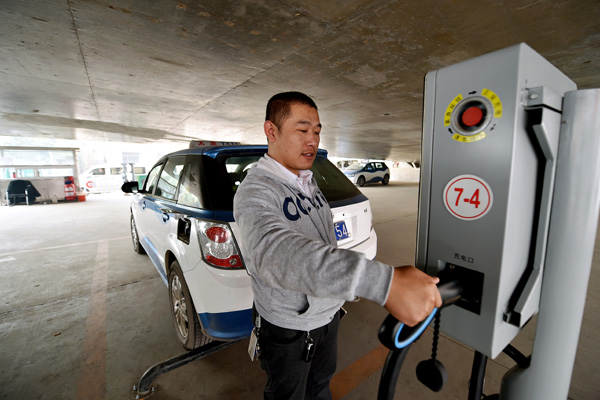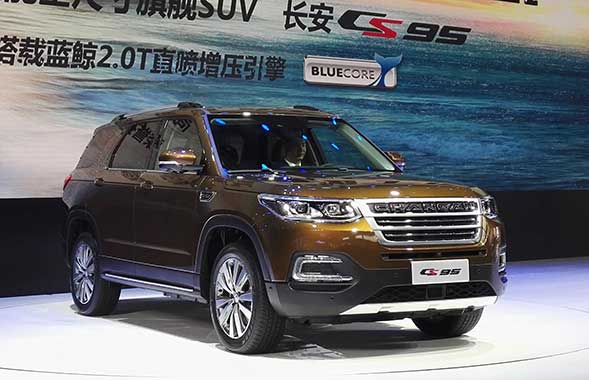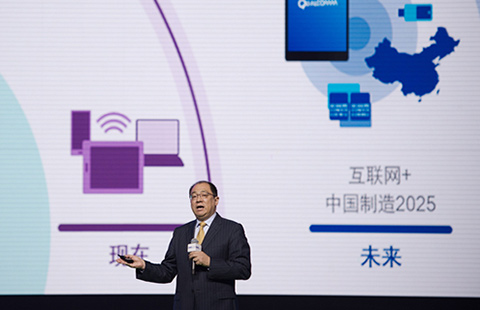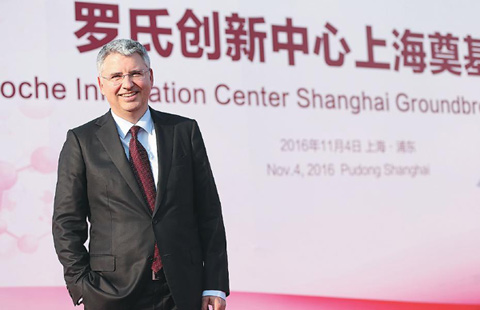Road map outlined for new energy industry
 |
|
A taxi driver charges his electric vehicle at a charging post in Taiyuan, Shanxi province, on Oct 19. The city initiated a move last year to replace gasoline and hybrid taxis with purely electric ones. Currently, 97 percent of taxis in the city are purely electric. [Photo by Zhan Yan/Xinhua] |
New energy vehicles are expected to take a notable share of the automotive market in China by 2030, according to a 15-year roadmap the Ministry of Industry and Information Technology released on Wednesday.
According to the blueprint, such cars will account for 7 percent of total car sales in 2020 and 40 percent in 2030, reaching an estimated 15.2 million units.
The road map, which the Society of Automotive Engineers of China was commissioned to draft, took more than 500 top auto experts in the country about a year to finish.
China sold 330,000 new energy vehicles in 2015, representing about 1.5 percent of total car sales that year, according to statistics from the China Association of Automobile Manufacturers.
New energy autos in the country include electric cars, plug-in hybrids and fuel cell vehicles, excluding hybrids like Toyota Motor Corp's Prius.
According to the blueprint, electric cars will target the compact car market, while plug-in hybrids are primarily aimed at people who are looking for larger cars.
To assuage mileage anxiety, automakers are expected to make breakthroughs in battery and motor technology by 2030, while a nationwide charging network will be built in the same time, said Ouyang Minggao, an automotive professor at Tsinghua University and leader of the panel of experts who drew up the plan.
The blueprint has set the target for electric cars to run 300 kilometers on a single charge in 2020 and 500 km in 2030.
"It is not that automakers cannot reach the (2020) goal now. The goal is to make such electric cars affordable without government subsidies," said Ouyang.
Denza, a joint venture between Daimler AG and BYD Co Ltd, is already approaching the 300 km goal, but its prices are discouraging many of those considering buying an electric car.
Charging up the market
The road map also includes an ambitious plan to build charging facilities across the nation.
By 2020, there will be at least 5 million charging posts in the country, no less than 20 million by 2025 and no less than 80 million by 2030: essentially, the same number as new energy cars in the country.
Analysts say adequate charging facilities will help to persuade people to buy new energy cars, because current owners complain that they often have to wait in long lines to charge their vehicles.
Statistics show that there were 500,000 new energy vehicles nationwide by the end of 2015, but charging poles numbered merely 57,000.
China has already become the largest market for new energy vehicles, but some problems have also emerged, such as the recently exposed scandal of some automakers swindling government subsidies.
Qu Guochun, deputy director at the industry equipment department of the Ministry of Industry and Information Technology, said the ministry is "working with relevant departments to improve policies involving incentives for energy-saving and new energy vehicles".
Finding a path forward
Despite some black sheep, Chinese carmakers have been persistent in exploring ways to expand their businesses into the fast-growing new energy vehicle market.
"We have invested a lot in the new energy vehicle business and will keep doing so," said Ni Shaoyong, vice-president of Chery New Energy Automotive Technology Co Ltd, in an earlier interview with China Daily.
Chery was one of the early investors in new energy vehicle research and development, and launched its first electric minicar eQ at the end of 2014.
Ni said the market will be a battlefield for all the major carmakers in the foreseeable future, and only the best ones will survive.
SAIC Motor Corp Ltd, China's largest automaker by volume, will invest at least 20 billion yuan ($3.1 billion) in new energy vehicles in 2016-20, according to its plan released in April.
The plan said it will expand its lineup with more than 30 related models in five years, including electric cars and plug-in hybrids, with annual sales for these new vehicles exceeding 600,000 units a year by the end of 2020.
SAIC Vice-President Wang Xiaoqiu expects that new energy vehicles will become mainstream in the automotive industry by 2025.
BAIC Motor Corp Ltd, which primarily focuses on electric cars, will continue to keep new energy vehicles at the core of its activities. It hopes to reach half a million sales of such cars by 2020.
The automaker has set up a subsidiary dedicated to the production of these models. In 2015, it sold more than 20,000 electric cars, ranking first in China and fourth globally.
The market is also becoming a new focus for international automakers.
Volkswagen AG unveiled a concept car called the I.D. at the Paris auto show this month.
The car, which has a range of up to 600 km, is based on the carmaker's new Modular Electric Model platform, which will also roll out in 2020.
"The future is electric," said CEO Matthias Muller, who said that the group plans to roll out more than 30 electric models by 2025, besides those that have already hit the market.
Some of its electric cars are expected to be produced in China, now that it is in talks with Chinese automaker Jianghuai Automobile Co Ltd on building a joint venture to develop and build new energy vehicles in the country.























